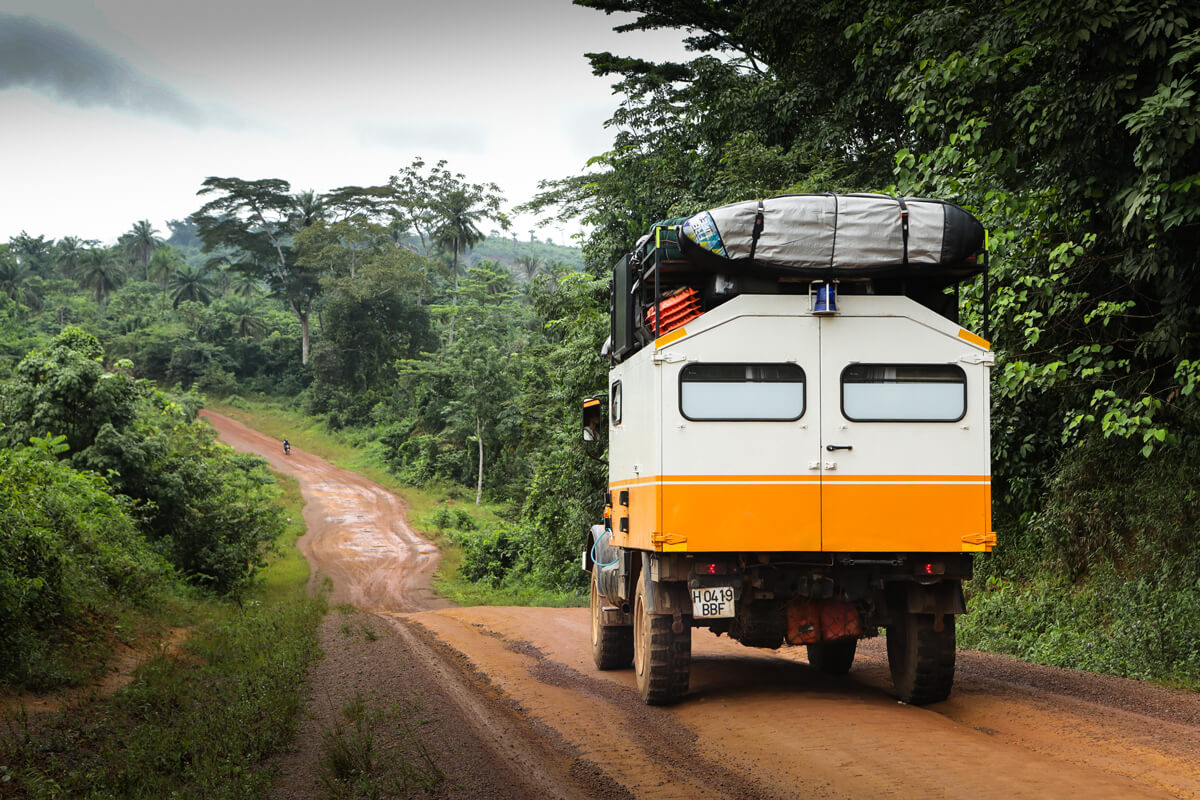Argentina boasts over 4,000 kilometres of coastline, but is rarely considered a popular surf destination.
However, as we all know, it only takes one wave to get hooked and be forever guided by the allure of the ocean. It becomes an excuse for travel, waking up early, and taking that extra week off work to chase the ‘perfect’ swell.
Surfing makes our worlds bigger and pushes us to stray a little further from the beaten path, and Julián and Joaquín Azulay are two Argentinian brothers who got a taste of it and never looked back.
Born and raised in the energetic Argentinian capital of Buenos Aires, the pair were first introduced to surfing by their father, Jorge — a pioneer in Argentinian surfing who still carves it up to this day at the ripe old age of 82. The boys fell in love with the surf and spent their early years escaping to the coast whenever possible.
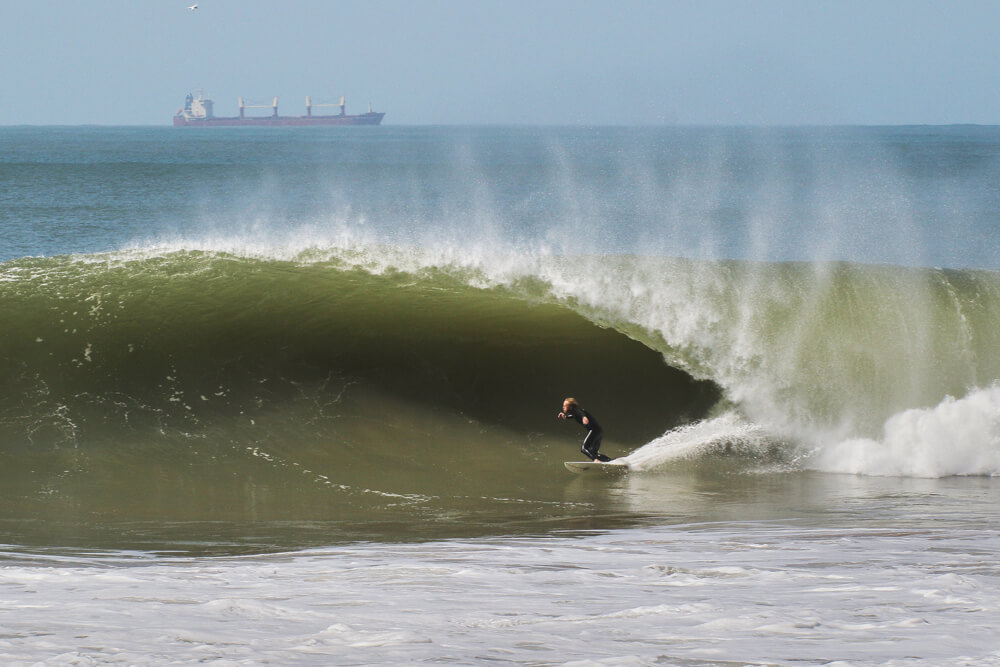
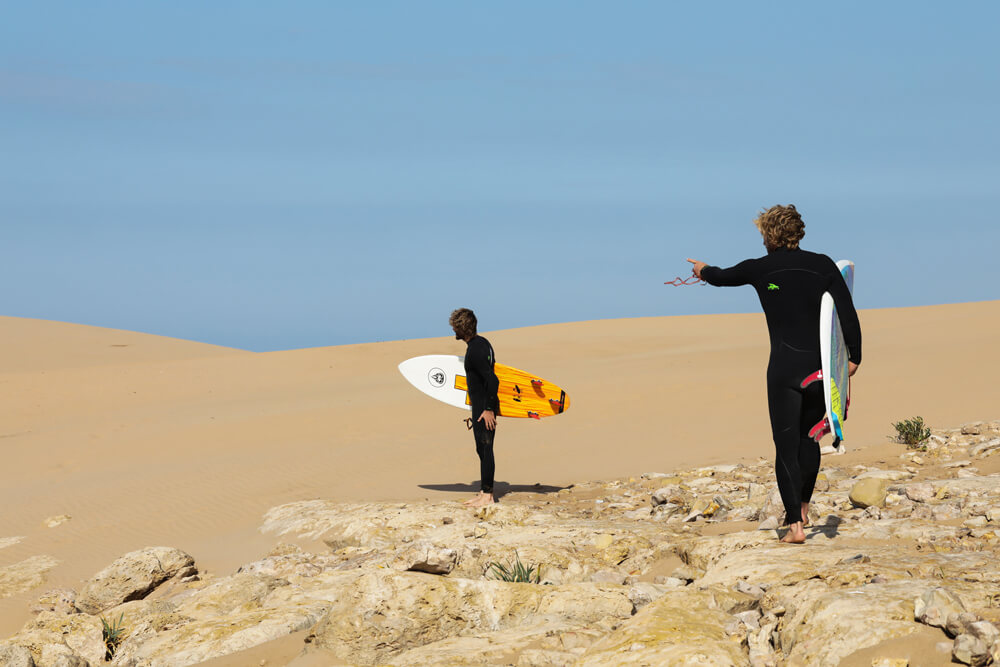
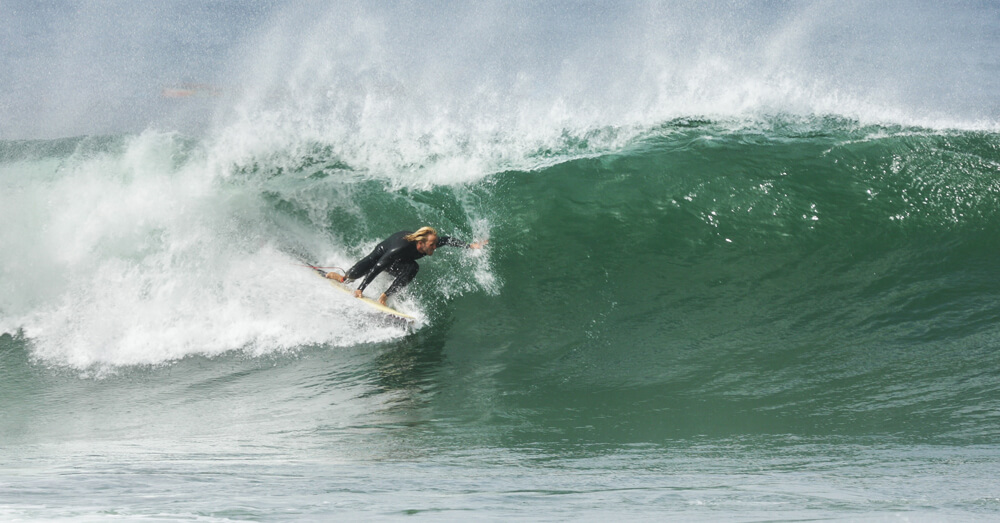
As time passed by, the brothers grew out of their home and longed for new experiences and faraway lands, eventually leading them to the bright lights and bustle of Los Angeles. After working tirelessly and surfing less and less, something clicked in older brother Julián’s mind — a longing for the motherland and an urge that couldn’t be ignored.
Julián and Joaquín didn’t want to simply up and leave LA — they wanted to drive home from California to Argentina on an adventure filled with surf and freedom. Little did they know at the time that this would become their way of life.
Equipped with nothing more than a van, surfboards, and a Sanyo handycam, the boys set off on a journey that would last 403 days.
Their trip gained significant interest among online blog readers, leading them to create a film that featured in several international theatres and won an array of awards. It’s something that Joaquín said would never have occurred to them in their wildest dreams.
“For us, it was amazing that we even got a reply from a festival to feature our film. Suddenly, we were getting accepted into so many of them, unexpectedly winning awards and accolades. It was amazing. Then we premiered in an Argentinean theatre, and it was a full house. That gave us the push to do another expedition.”
People fell in love with the modesty and relatability of the two brothers, who left their jobs to pursue their dreams and curiosities. Of course, it was always about so much more than just surfing.
“I think that’s a part of why people were interested in what we did, but it’s also because we don’t represent professional surfing.
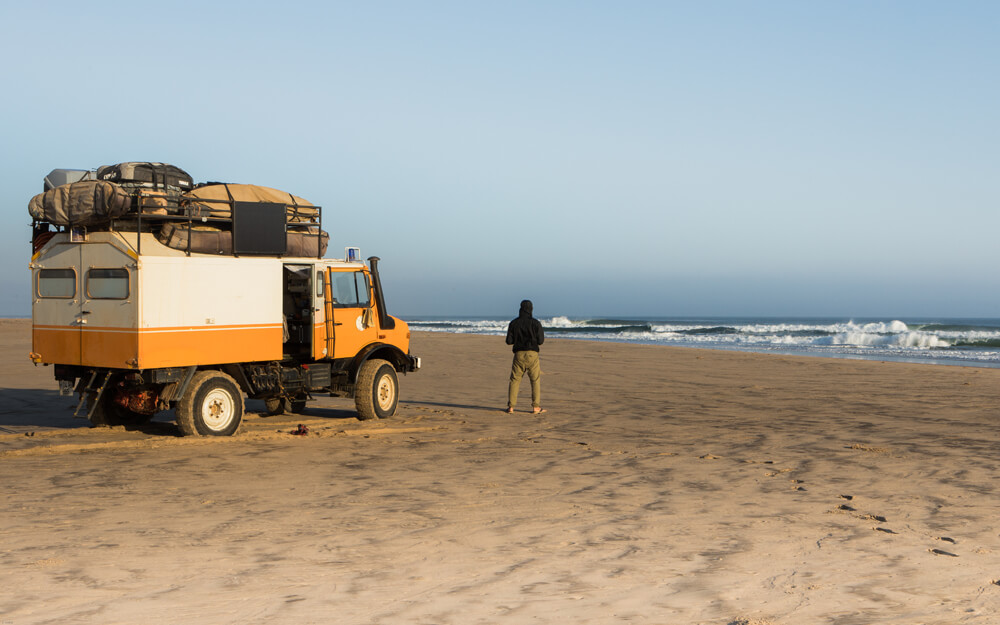
“We represent people who do what they love and go for it. We’re young and spirited — people like that kind of attitude.”
After the success of their first expedition, the brothers took to travelling and filming full-time, visiting some of the most amazing and isolated areas in the world.
Referring to themselves as Gauchos del Mar (Cowboys of the Sea), the boys lived out of a tent and truck for six months across the Patagonia region, walked for 53 days along the easternmost tip of Tierra del Fuego Province, and searched for waves in the 700-island archipelago of the Falkland Islands.
However, their 22-month African adventure in an ex-military ambulance proved to be one of the most physically, mentally, and logistically intense expeditions that the boys had ever faced.
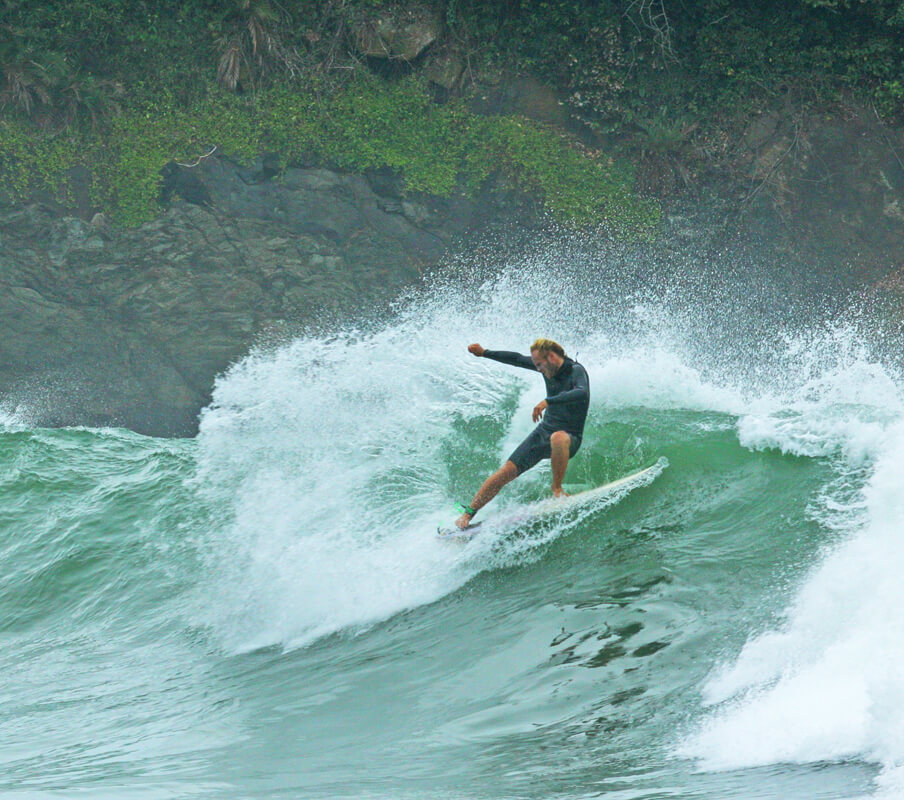
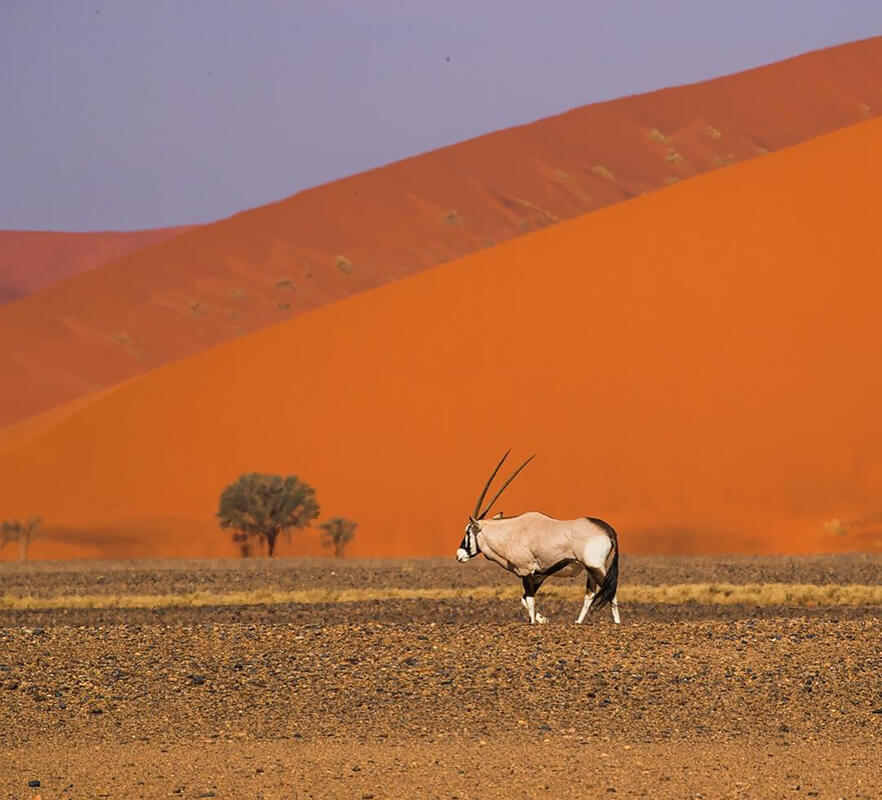
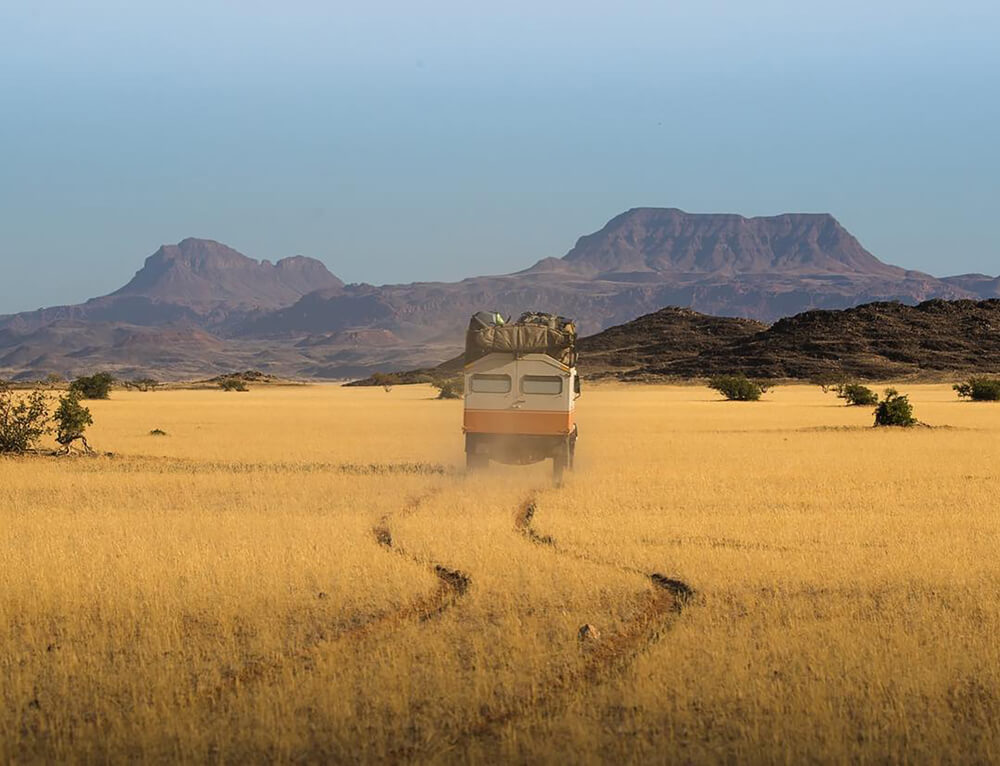
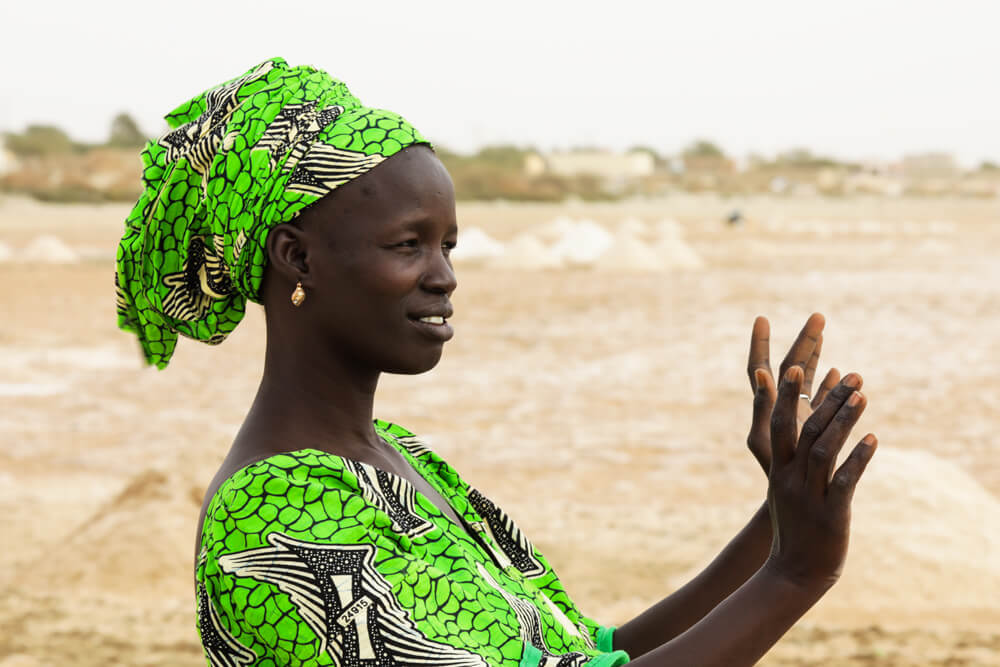
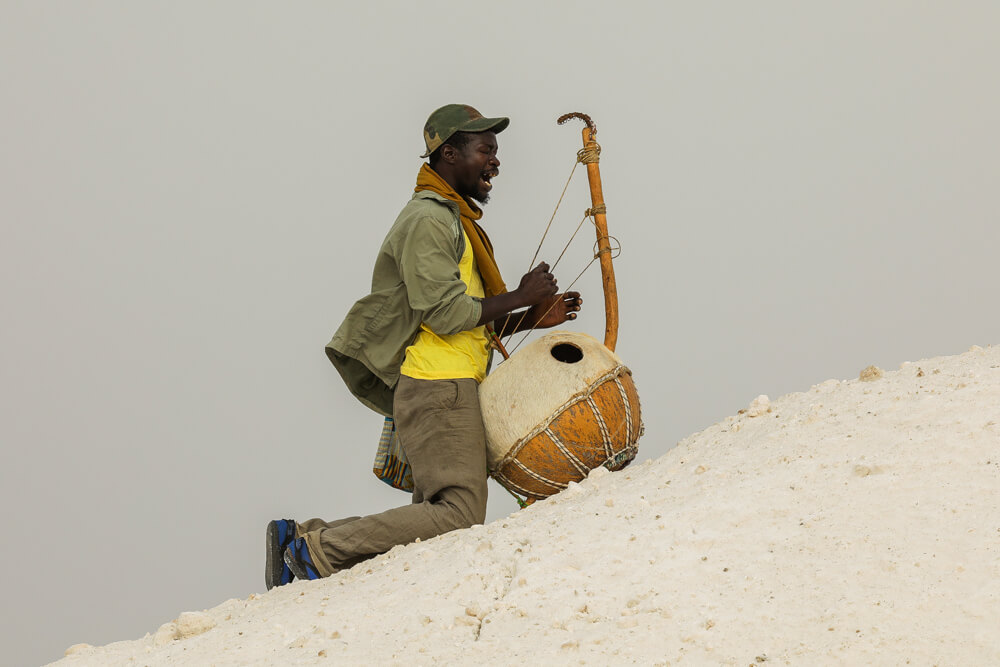
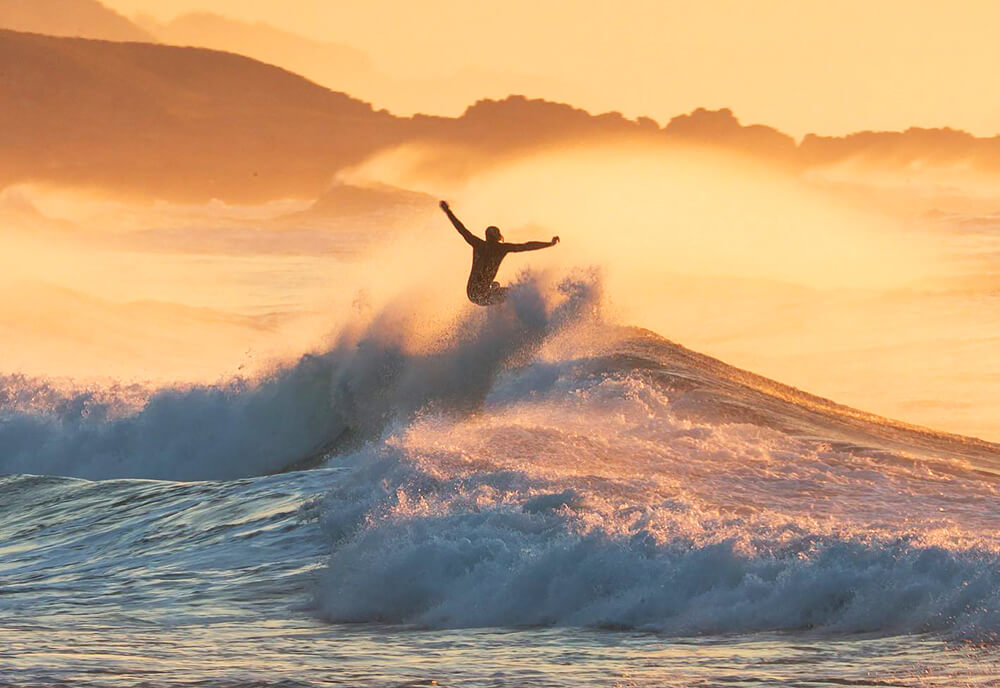
We sat down with the younger half of Gauchos del Mar, Joaquín, to hear more about their adventure and the challenges they faced during one of the most epic surf-inspired adventures of all time.
“The idea actually came around when we were driving through Baja in Mexico and the temperature gauge read 41°C. We said to ourselves, ‘Imagine doing this in Africa.’
“Then, seven years later, we bought an ex-military ambulance in Spain and fitted it out ourselves with the requirements to live and camp in it. We wanted to stay for two years in a row, travel the whole perimeter of the continent, and then go to Europe.”
It was their first time on the continent of Africa, and with the added pressure of filming a television series, the brothers knew they were embarking on one of their most challenging journeys yet. Visas, border crossings, and corrupt officials tested the patience, perseverance, and limits of everyone involved.
However, with time to spare and a long journey ahead, the boys took it upon themselves to learn the ways of the people and how to deal with situations where advancing seemed impossible.
“Some countries are incredibly difficult to get visas for, so you just have to make it happen. You need to figure things out, and it’s not easy. You will lose a lot of time in bureaucracy, and you will get mad, and you will get stressed out.
“For example, Nigeria was very intimidating. The police were always searching for an opportunity to get something from us, and we didn’t want to be a part of the corruption that happens in Africa — the kind of vertical side where white people go and pay out policemen.
“We had time, so we kind of played a game with them. We told them we were Argentinians who had also been colonised — that we shared similar backgrounds. We told them we were not like people from other countries that came here to pay their way through. We wanted to live with the people and take the time to connect with them properly.
“We were never disrespectful, but we always went horizontal with them. Some police understood, but some were still a bit heavy on us and extremely hard to come to terms with. So, as a last resort, we would tell them, ‘We have a question to ask you… do you like football?’
“They would stare at us super seriously, and often they’d reply, ‘Yeah, I like football.’ We’d say, ‘But the really important question comes now — Cristiano Ronaldo or Messi?’ Many said Ronaldo, so we’d say, ‘Okay, you just lost yourself a postcard signed by Messi.’
“Even though the postcards were fake, they really helped us in times of need. They wanted them, so eventually they let us through. We carried signed jerseys and other things as well, which helped us in these situations.
“It was all about playing the game. Sometimes it would take forever, because you can’t just give them these things straight away.
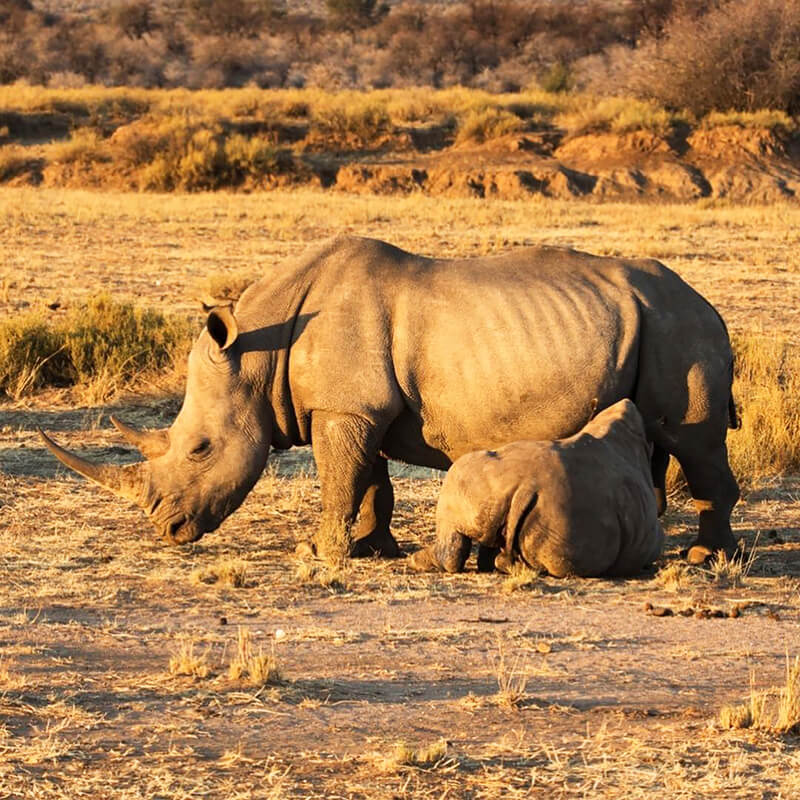
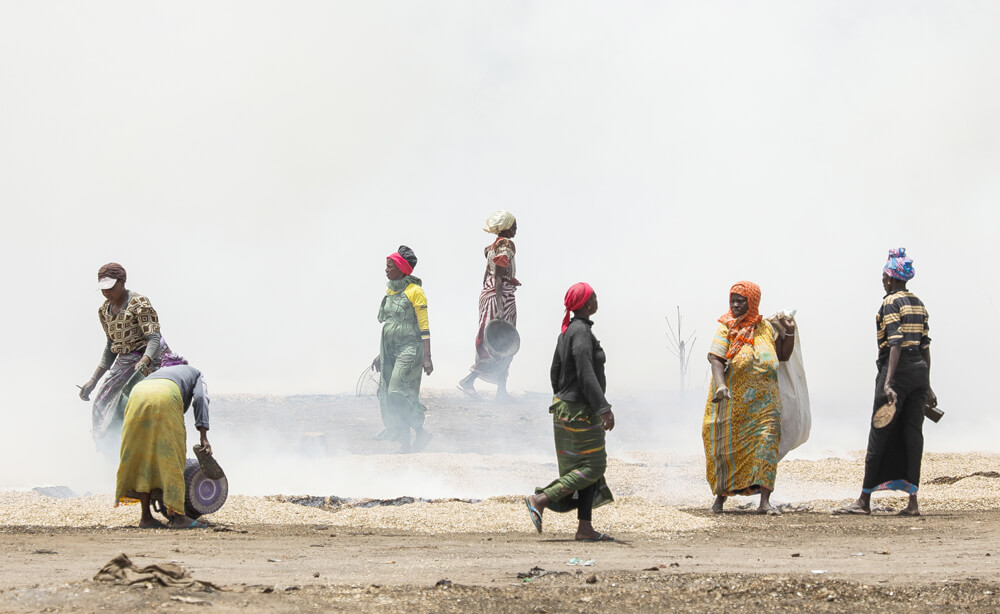
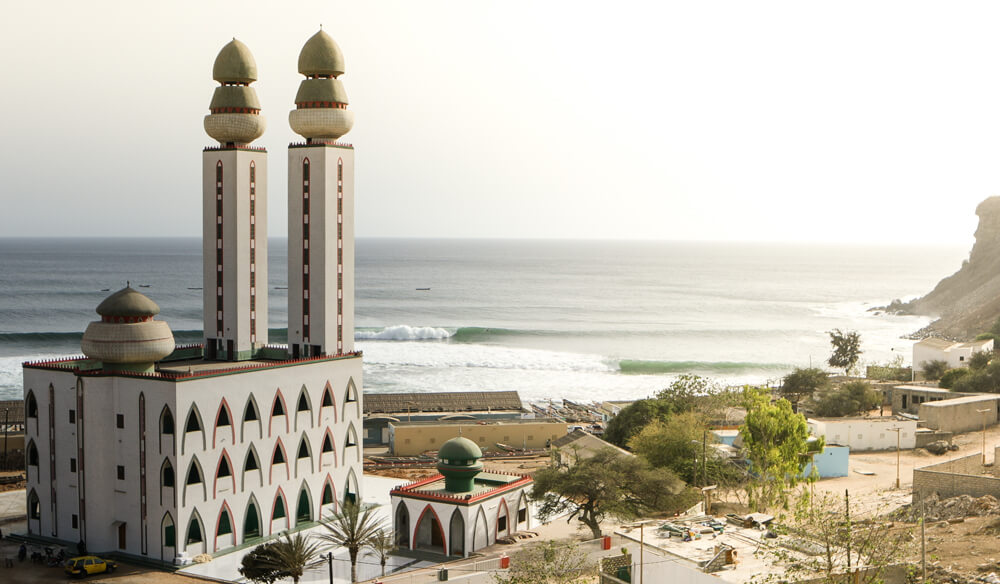
“By the end of the negotiations, we would be taking selfies and exchanging phone numbers, and everyone was happy.”
The brothers’ accommodation for the trip came in the form of their ex-military ambulance, which stood out like a sore thumb wherever it went. There were many sleepless nights during the voyage, but Joaquín says it helped them understand the core values of African people.
“When we arrived at a village looking for a place to sleep in the ambulance, we would request permission from the leaders to park the truck for the night, which was never usually a problem, but the whole community would come while you’re trying to sleep at night.
“They’d talk outside, stare, watch, and want to eat with you. So, you get used to sharing every moment, whether you like it or not. At five in the morning, the kids wanted to play. It’s funny, but stressful.
“After all, you also need to rest, because you’re working and travelling all day long. But in the end, the people were super amazing — they just wanted to share time.”
Like all travel adventures, there were sketchy and nail-biting moments that made the Gauchos question why the hell they were there in the first place. As they made their way through Nigeria, a civil war broke out across the southern border in Cameroon. Forced to shelter in a church compound, Julián, Joaquín, and the two accompanying crew were the only westerners in the area at the time.

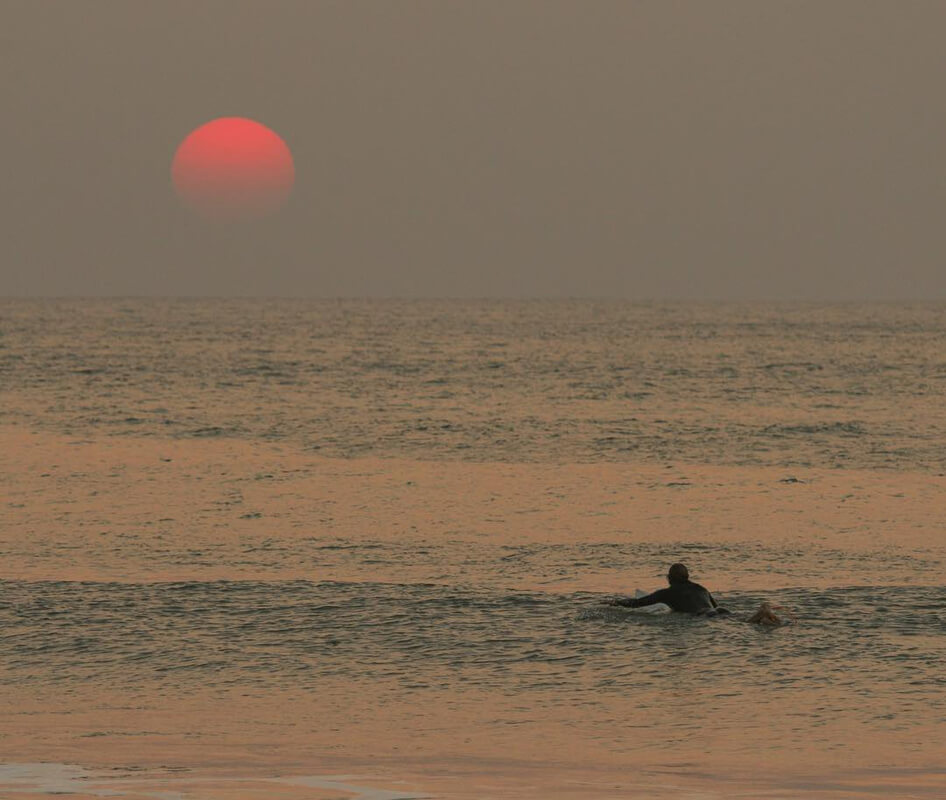
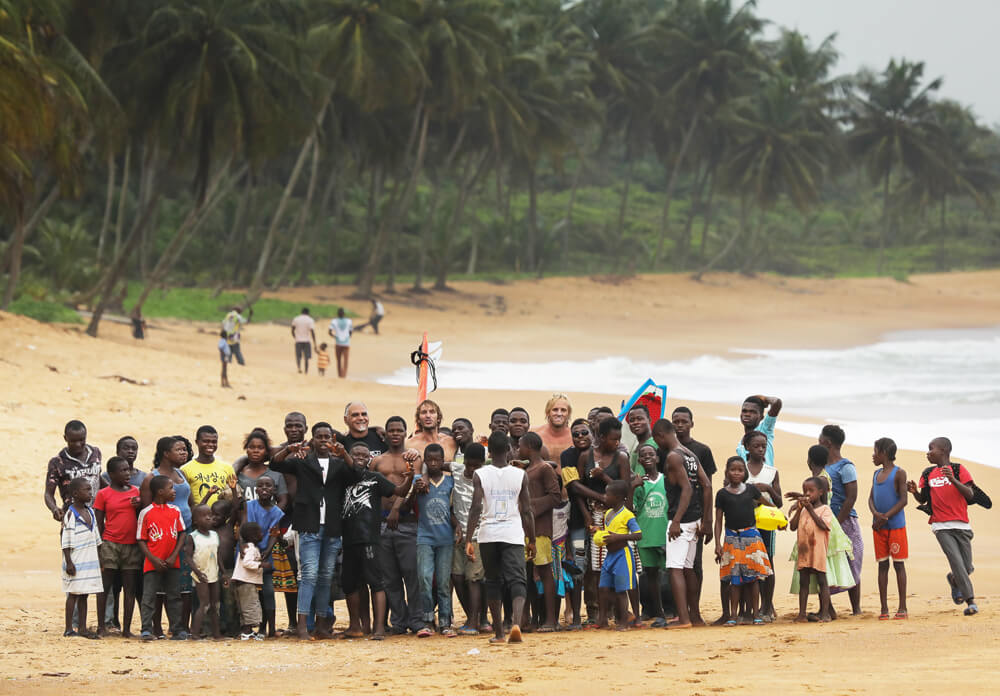
“We couldn’t make it out by land — the civil war was in Cameroon, and the north of Nigeria was full of the Boko Haram terrorist group. It was a heavy situation, especially because we had to travel to the port of Nigeria to exit by ferry.
“We were negotiating with three ships that were trying to rip us off, asking for around $6,000 to take the truck. It ended up only costing us $1,500, but it was such a stressful moment going to the port and talking to these mafia-type people who were counting large sums of money right in front of you.
“The heat and humidity were intense, and they would rarely respond to us. Overall, it was super intimidating, but luckily, not a common thing we experienced in Africa.”
The crew was stranded for 43 days inside the church compound, leaving only to negotiate their exit and buy lamb chops or chicken from a nearby supermarket for an asado (barbeque).
“That was the happy moment of the week. The only thing that made us a little bit happier was food, because we had nothing else to do there.”
After finally negotiating their exit, they bid farewell to Nigeria and boarded their ship to safety. Kind of.
“The trip was supposedly meant to last 18 hours — it lasted 36 hours, almost two days. At one point, it was sinking in the middle of the sea, pumping water out. It was crazy.”
Once they arrived in Gabon, the team decided that they needed a break from Africa. They parked the truck in another church compound and left for home, completely burned out.
“We started to do these kinds of stages — six months home, then four or five months in Africa. It was very, very intense and expensive. You need to want it. It’s not an easy trip.”
It wasn’t only bureaucracy and logistical nightmares that took its toll on the team. Simple necessities like food and water were sometimes hard to come by for travelling foreigners who aren’t used to African cuisine.
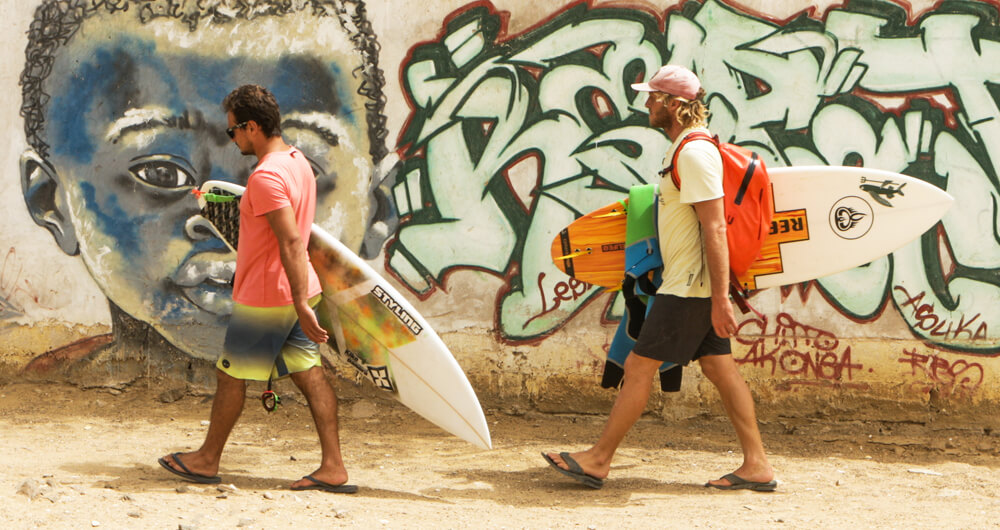
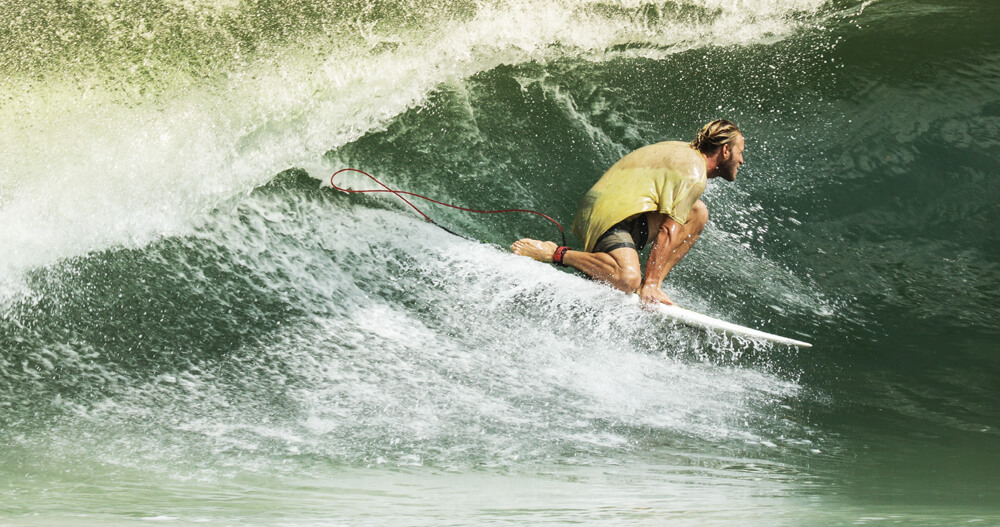
“It’s very expensive. I mean, what you eat is going to be imported because you can’t eat the bushmeat, or you’re going to get sick. On occasions we would accept invitations from communities to eat with them, and we got sick many times for like two or three weeks, which would only make us weaker. That’s when malaria becomes a bigger risk, and you become more susceptible to other diseases.”
In between the chaos and the mishaps, the brothers did aim to surf as much as they could on the continent. Facing all kinds of challenges and small weather windows, it certainly wasn’t as easy as one would think to score epic waves. But in true Gauchos del Mar fashion, Joaquín and Julián experienced some unforgettable sessions, albeit rarely.
“We got epic waves along the way — almost in every country — but it was very inconsistent. Out of the 22 months we spent in Africa, I would say we surfed for maybe three or four of them.”
Re-energised, recovered, and ready to continue their epic adventure after a trip home, the Azulay boys returned to the continent and got back on the road. They travelled from Gabon to South Africa, paused for six months, and then continued along the Indian Ocean coast, exploring the surrounding islands before eventually returning to South Africa.
The western world has so many different perceptions and uneducated interpretations of life in Africa. We often view the continent as a single, severely underdeveloped nation drowning in poverty and conflict. During their expedition, one of Gauchos del Mar’s objectives was to show equality and quash common misconceptions.
“We wanted to show that, in the end, it’s about being horizontal. We’re not better or worse than anyone in the world. We are the same. We have different capacities, and that’s it. We also wanted to feel the reality of Africa, because people have so many misunderstandings about the continent.”
For now, the brothers are focused on premiering their latest expedition, Antarctica — Domain One, but something tells me it won’t be long before the ex-military ambulance is fired up once again to continue their epic African adventure.
